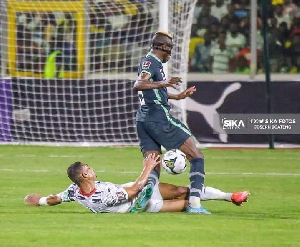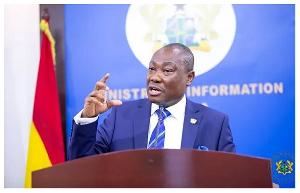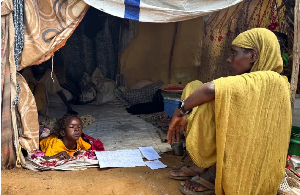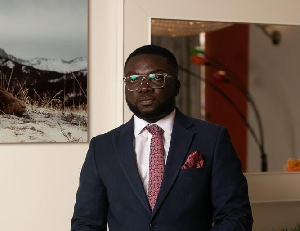Accra, March 14, GNA - Officials of the National Reconciliation Commission (NRC) have visited a number of security institutions in Accra to inspect places where human rights violations were alleged to have been committed over the years.
The places were the Ussher Fort and Nsawam Maximum Security Prisons, Castle Guardroom, Gondar Barracks and the Accra Regional and National Headquarters of the Bureau of National Investigations (BNI). A statement signed by Mr Mohammed Affum, Acting Director of Public Affairs at the NRC, said the visit afforded the Commissioners the opportunity to see for themselves places that have come to be seen by some petitioners to the commission as a symbol of human rights violation during periods of unconstitutional government.
The visit also formed part of the Commission's investigation into petitions of human rights violations, and the knowledge gained would assist in making recommendations for institutional reforms, the statement said.
In the course of its work, the NRC had received and heard numerous petitions of killings, disappearances and torture of persons who were in custody at Gondar barracks, Castle Guardroom and BNI cells. Some petitioners complained about what they described as inhuman conditions in the prisons where, among other things, they were detained in cells that were lit twenty-four hours with high wattage bulbs resulting in the impairment of their vision.
The statement said during the visits, the Commissioners held discussions with officials of those institutions.
It said at the BNI Headquarters, the Commissioners inspected the cell where an Air Force Officer, who was detained there in 1989, reportedly committed suicide.
Meanwhile, the Commission renewed its call for memoranda to its committees, which were investigating the context in which human rights violation occurred from March 6, 1956 to January 6, 1993.
The committees are on security services, judiciary, media, professional bodies, traditional rulers and religious bodies, students and labour movement.
The committees are to establish whether those institutions played any role in human rights violations, the statement concluded. 14 Mar. 04
General News of Sunday, 14 March 2004
Source: GNA






![Emmanuel Tetteh George and his wife Ruth Ewoenam [Image Credit: Manuel Photography] Emmanuel Tetteh George and his wife Ruth Ewoenam [Image Credit: Manuel Photography]](https://cdn.ghanaweb.com/imagelib/pics/943/94388192.295.jpg)





